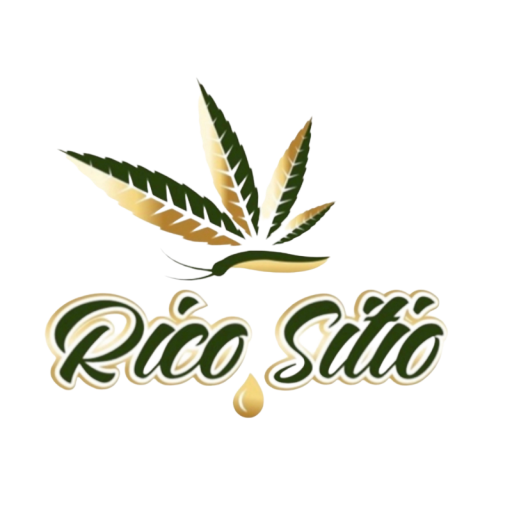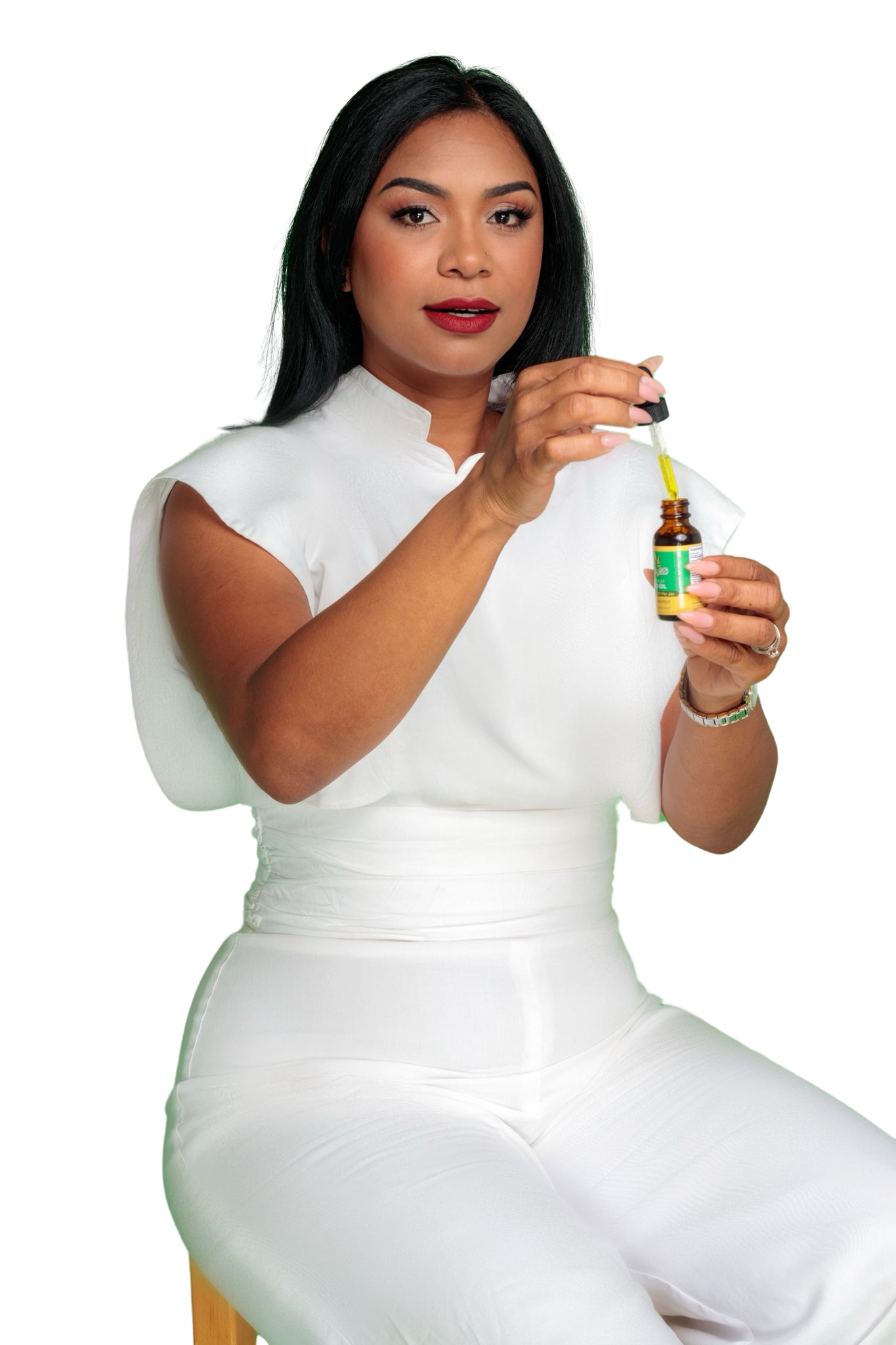If you’re looking to sell CBD products in Florida, understanding the florida cbd license requirements is the very first step to success. Florida has become a hotbed for the CBD industry, offering incredible opportunities for entrepreneurs ready to tap into the booming wellness market. However, compliance is key—selling CBD in Florida means adhering to strict florida cbd license requirements, legal permits, and CBD labeling regulations.
This guide will walk you through everything you need to know:
- What licenses are required to sell CBD in Florida.
- The cost of obtaining a CBD business license in Florida.
- Specific Florida CBD labeling requirements to ensure your products meet state laws.
Whether you’re selling online, in a retail space, or both, following these regulations is essential to avoid fines and build a successful, legal business in the Sunshine State. And for all the female entrepreneurs reading this, know that the CBD market offers not just opportunity but empowerment. Together, we’ll make sure your business is compliant, profitable, and poised for growth. Let’s start turning your CBD dreams into reality!
Is CBD Legal in Florida in 2025? A Complete Guide to CBD Laws and Regulations
Florida CBD License Requirements: Everything About Starting Your Legal CBD Business
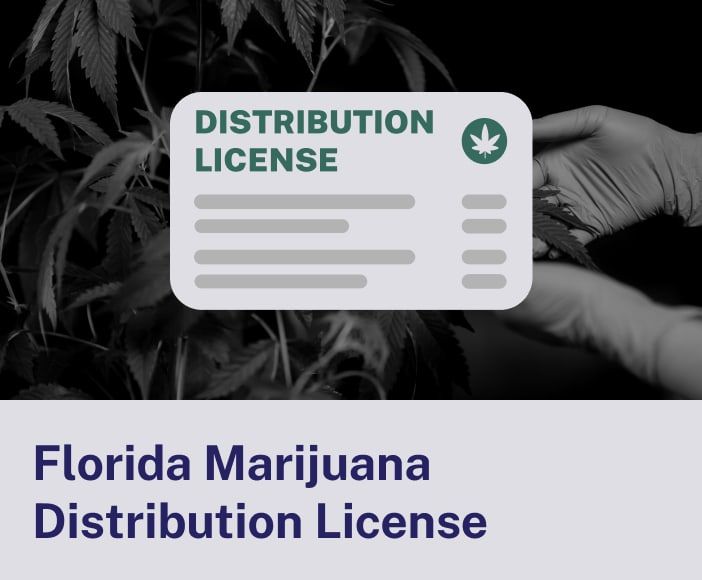
Starting a CBD business in Florida can feel overwhelming with so many rules, licenses, and permits to navigate. From obtaining the Hemp Food Establishment Permit to meeting the strict Florida CBD labeling requirements, every step matters to ensure your business operates legally. In this guide, we’ll cover everything you need to know—licenses, costs, labeling, compliance, and tips for thriving in Florida’s competitive CBD market.
Licenses Required to Sell CBD in Florida
If you’re planning to sell CBD products in Florida, understanding the florida cbd license requirements is essential to operate legally and avoid fines or penalties. Florida has implemented clear guidelines to ensure that all CBD businesses meet safety and transparency standards. Below, I’ll walk you through the main licenses and permits you’ll need to comply with florida cbd license requirements and launch your business successfully.
1. Florida Hemp Food Establishment Permit
Meeting the florida cbd license requirements begins with obtaining a Hemp Food Establishment Permit, issued by the Florida Department of Agriculture and Consumer Services (FDACS). This permit is mandatory for any business involved in the sale of consumable CBD products, such as oils, gummies, or beverages, in Florida.
Key details about the Hemp Food Establishment Permit:
- Who needs it: Any business manufacturing, processing, storing, or selling consumable CBD products in Florida.
- Application process: Submit an application to FDACS, providing information about your business, the types of products you plan to sell, and the location of your operations.
- Inspections: Your facility will be inspected to ensure compliance with food safety standards.
- Annual renewal: This permit must be renewed every year.
2. Florida Hemp Cultivation License (if applicable)
If you’re planning to grow hemp for CBD production, you’ll need a Hemp Cultivation License. This is another key component of the florida cbd license requirements, especially for farmers or manufacturers.
Key details about the Hemp Cultivation License:
- Who needs it: Farmers or businesses growing hemp for CBD extraction.
- Application process: Submit an application to FDACS, including property ownership or lease documents for your cultivation site.
- Background check: A Level 2 background screening is required for all applicants.
- Compliance: Hemp crops must meet the state’s THC limits (0.3% or less) and adhere to strict FDACS guidelines.
3. General Business License and Local Permits
Beyond hemp-specific licenses, you’ll also need to fulfill general florida cbd license requirements for running a business in Florida. This includes:
- State Business Registration: Register your business entity with the Florida Division of Corporations.
- Local Permits: Depending on your city or county, additional local permits may be necessary, particularly if you operate a physical store.
4. Food Safety Certifications (if selling edibles)
For CBD businesses selling edible products, like gummies or infused beverages, compliance with food safety standards is critical. Certifications may include adherence to the Food Safety Modernization Act (FSMA) as well as Florida’s state-level food handling requirements.
5. Certificate of Analysis (COA) for Each Product
Although not a license, providing a Certificate of Analysis (COA) for each product is mandatory under florida cbd license requirements. This document, issued by a third-party lab, ensures that your products are compliant with state laws, confirming THC levels (0.3% or less) and the absence of harmful contaminants like pesticides or heavy metals.
Key note: Make COAs easily accessible to customers by including a QR code on your product labels.
Summary of Licenses You’ll Need
To meet the florida cbd license requirements and legally sell CBD in the state, make sure you have the following:
- Hemp Food Establishment Permit (required for selling consumable CBD products).
- Hemp Cultivation License (if you plan to grow hemp).
- General business licenses and local permits for operating in Florida.
- Food safety certifications (if you’re selling CBD edibles).
- Certificate of Analysis (COA) for every product you sell.
By ensuring you meet all the florida cbd license requirements, your CBD business can operate legally, build customer trust, and establish a strong foundation for growth in Florida’s thriving CBD market.
How Much Does It Cost to Obtain a CBD License in Florida?
Starting a CBD business in Florida involves understanding not only the licensing process but also the costs associated with it. Meeting the florida cbd license requirements requires an investment, but the costs are manageable if you plan ahead. Below, I’ll break down the key expenses involved in obtaining the licenses and permits needed to operate legally in Florida.
1. Hemp Food Establishment Permit Costs
The Hemp Food Establishment Permit, issued by the Florida Department of Agriculture and Consumer Services (FDACS), is mandatory for any business selling consumable CBD products like oils, gummies, or beverages.
- Application fee: The cost of applying for this permit is $650. This includes processing and administrative fees for reviewing your business application and inspecting your facility.
- Annual renewal fee: Renewing this permit each year costs an additional $650. It ensures that your business continues to meet Florida’s CBD compliance standards.
- Inspection fees: If follow-up inspections are required, there may be additional charges, typically ranging from $150 to $300.
2. Hemp Cultivation License Costs
If you plan to grow hemp to produce your own CBD, you’ll need to account for the cost of the Hemp Cultivation License.
- Application fee: Applying for a Hemp Cultivation License through FDACS costs $50.
- Background check fee: A Level 2 background check is required and costs around $75–$100 per person.
- THC compliance testing: Once your hemp is harvested, it must be tested to ensure it meets the legal THC limit of 0.3%. Testing fees range from $200–$300 per batch, depending on the size of your harvest and the lab used.
- Renewal fee: Like the Food Establishment Permit, this license must be renewed annually at the cost of $50.
3. Business Registration and Local Permits
To comply with general florida cbd license requirements, you’ll need to register your business and secure local permits.
- State business registration fee: Registering your business with the Florida Division of Corporations typically costs $125–$150, depending on the type of entity (e.g., LLC, corporation).
- Local permits and fees: Municipalities may require local business permits or occupational licenses. Fees vary by location but generally fall between $50 and $200.
4. Food Safety Certification Costs (if selling edibles)
For CBD businesses selling edible products, like gummies or infused beverages, compliance with food safety standards is critical.
- FSMA compliance: Training and certification for the Food Safety Modernization Act (FSMA) costs between $200–$600, depending on the program. This is required if you’re producing or handling edible CBD products.
- Facility inspection fees: Inspections for food safety certifications can cost $100–$300, depending on the size and complexity of your operations.
5. Certificate of Analysis (COA) Costs
A Certificate of Analysis (COA) is required for each CBD product to prove it meets state regulations, including THC limits (0.3% or less).
- Lab testing fees: Testing costs depend on the type of product and lab but generally range from $75–$150 per product. If you have multiple products in your catalog, you’ll need to budget for testing each one individually.
Estimated Total Costs for Starting a CBD Business in Florida
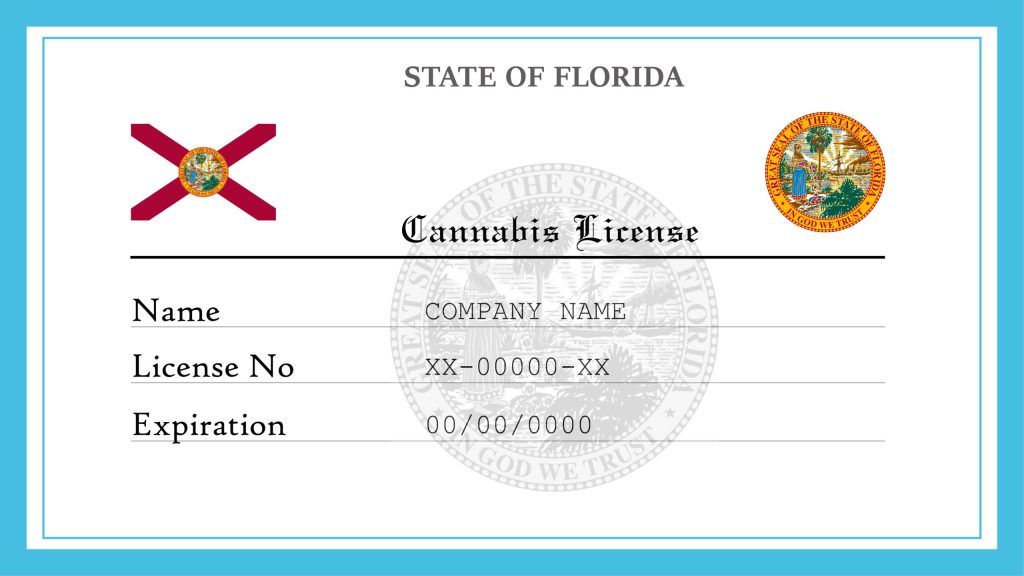
Here’s an updated breakdown of estimated startup costs:
- Hemp Food Establishment Permit: $650 application fee + $650 annual renewal fee.
- Hemp Cultivation License (if applicable): $50 application fee + $75–$100 background check fee + $200–$300 THC compliance testing fee.
- State business registration: $125–$150.
- Local permits: $50–$200, depending on your city or county.
- Food safety certifications (if selling edibles): $200–$600 for FSMA compliance + $100–$300 for facility inspections.
- Lab testing for COAs: $75–$150 per product.
Total estimated startup costs: $1,200–$2,500+ (depending on the nature of your business and the number of products).
By understanding and budgeting for these expenses, you can confidently meet the florida cbd license requirements and focus on building a successful CBD business. Keep in mind that some of these costs will be recurring, like annual permit renewals and product testing, so it’s essential to include them in your financial planning.
Florida CBD Labeling Requirements

Meeting the florida cbd license requirements is just the first step to running a compliant CBD business. Proper labeling is equally important, as Florida has strict regulations on how CBD products must be presented to consumers. Failing to adhere to these Florida CBD labeling requirements could result in penalties or product recalls, so it’s crucial to get this right. Below, I’ve broken down the specific guidelines you need to follow when labeling your CBD products in Florida.
1. THC and CBD Content Disclosure
Florida law requires all CBD product labels to clearly indicate the amount of CBD and THC in each product.
- Exact milligram amounts must be listed, both per serving and for the total product.
- THC content must not exceed the legal limit of 0.3%. This must also be verified by third-party lab testing.
2. QR Code Linking to Certificate of Analysis (COA)
Every product must include a QR code that links directly to the product’s Certificate of Analysis (COA) from a third-party laboratory.
- The COA must confirm that the product complies with Florida’s THC limit and does not contain harmful substances like pesticides, heavy metals, or residual solvents.
- QR codes should be functional, easy to scan, and lead directly to the product-specific COA, not a general website.
3. Manufacturer Information
Labels must include the name and contact information of the manufacturer or distributor responsible for the product. This ensures accountability and transparency for consumers.
- Include the company name, address, and phone number or website.
- If the manufacturer and distributor are different entities, both must be listed on the label.
4. Product Description and Ingredients
CBD product labels must provide a clear and accurate description of the product, including:
- Product name: Clearly state what the product is (e.g., CBD Oil, CBD Gummies).
- Ingredients list: List all ingredients in descending order of quantity. This is especially important for edible products.
- Net weight or volume: Indicate the total amount of product in the package (e.g., 30 mL for CBD oil, 10 gummies per package).
5. Legal Warnings and Disclaimers
Florida requires specific warnings and disclaimers to appear on CBD product labels. These include:
- A statement that the product is not intended to diagnose, treat, cure, or prevent any disease.
- A warning to keep the product out of reach of children.
- For edible CBD products, a disclaimer about potential allergens (e.g., “Contains soy or nuts”).
6. Batch and Lot Numbers
To ensure traceability, all CBD products sold in Florida must include a batch or lot number on the label.
- This helps track the product back to its manufacturing origin in case of quality control issues or recalls.
- Batch numbers should correspond with the COA and manufacturing records.
7. Expiration or Best-By Date
CBD product labels must display an expiration date or best-by date, particularly for consumables like gummies, oils, or beverages.
- The date should be based on stability testing conducted during product development.
- Ensure that your products remain stable and effective for the duration of their shelf life.
Florida-Specific Labeling Compliance Tips
- Double-check THC limits: Florida enforces the federal THC cap of 0.3%. Anything above this limit is considered illegal.
- Ensure QR codes are accurate: Test your QR codes before printing labels to confirm they direct consumers to the correct COA.
- Work with reputable labs: Choose third-party labs that are ISO-certified and experienced with Florida’s CBD regulations.
- Avoid unverified health claims: Do not claim that your CBD product cures, prevents, or treats specific medical conditions, as this violates FDA guidelines.
Why Labeling Matters
Proper labeling not only helps you meet the florida cbd license requirements but also builds trust with your customers. Transparent labels with clear information ensure consumers feel confident about the safety and quality of your products, which is essential for success in Florida’s competitive CBD market.
Additional Permits and Legal Considerations for Selling CBD in Florida
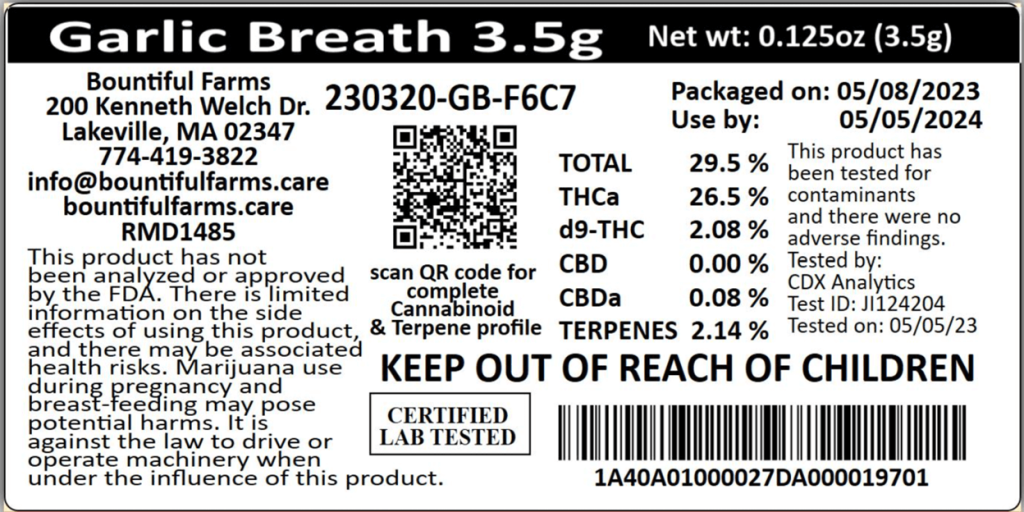
While obtaining the main licenses is crucial, there are additional permits and legal considerations you must address to ensure full compliance with florida cbd license requirements. These permits and regulations vary depending on the type of CBD products you’re selling, your business model, and whether you operate a physical store, an online shop, or both.
1. Food Establishment License (for Edibles)
If your business involves manufacturing, processing, or selling edible CBD products, such as gummies, drinks, or snacks, you may need a Food Establishment License in addition to your Hemp Food Establishment Permit.
- Who needs it: Businesses that prepare, package, or handle food products infused with CBD.
- Oversight agency: Florida Department of Agriculture and Consumer Services (FDACS).
- Key requirements: You must comply with federal and state food safety standards, including proper storage, sanitation, and production practices.
- Cost: This license typically costs between $200 and $400, depending on your facility and operations.
2. Zoning and Land Use Permits
If you plan to operate a physical storefront or a hemp cultivation site, you’ll need to verify that your location complies with local zoning laws and land use regulations.
- Retail stores: Some cities in Florida may restrict CBD businesses to certain commercial zones. You’ll need a zoning permit to ensure your location is approved for selling CBD products.
- Hemp farms: Agricultural zoning is required for hemp cultivation. Verify with your county to ensure your land is properly zoned for growing hemp.
- Permit cost: Zoning permits vary widely by city or county but typically range from $50 to $250.
3. Online CBD Sales Regulations
If your business model includes selling CBD products online, there are specific considerations to keep in mind:
- Shipping compliance: Ensure your products comply with THC limits (0.3%) and adhere to federal shipping regulations for hemp-derived products.
- State-specific laws: While Florida allows CBD sales, other states have their own laws regarding the sale and shipment of CBD products. Research shipping restrictions in states you plan to serve.
- Age verification: Florida law requires you to ensure that consumers purchasing CBD products are over 18. Implement an age-verification system for online sales.
4. Alcohol and Beverage Control (If Selling CBD Drinks)
If you’re planning to sell CBD-infused beverages, you may need additional permits from the Florida Division of Alcoholic Beverages and Tobacco (if the beverage contains alcohol) or FDACS (if it does not).
- CBD-infused alcohol: The sale of alcoholic beverages infused with CBD is strictly regulated and may not be permitted in Florida. Always consult with state regulators before adding such products to your inventory.
- CBD beverages without alcohol: Ensure that non-alcoholic beverages meet all food safety and CBD labeling requirements.
5. Insurance for CBD Businesses
Operating a CBD business in Florida comes with unique risks, so securing adequate insurance coverage is a critical consideration.
- Product liability insurance: Protects you in case a consumer claims harm from using your CBD product.
- General liability insurance: Covers accidents or injuries that occur on your business premises.
- Crop insurance: If you’re cultivating hemp, crop insurance can help protect your investment against weather damage, pests, or disease.
- Cost: Insurance premiums vary depending on the size and nature of your business but typically range from $500 to $2,500 annually.
6. Advertising and Marketing Restrictions
Florida, like the federal government, has strict guidelines for advertising and marketing CBD products.
- No medical claims: You cannot advertise CBD products as treatments or cures for specific medical conditions. Avoid phrases like “cures anxiety” or “relieves chronic pain.”
- Age restrictions: Advertisements must not target minors. Avoid advertising on platforms that predominantly attract users under 18.
- Transparency: Be clear about the product’s contents, including CBD concentration and THC levels, in all marketing materials.
Staying Updated on Regulatory Changes
CBD regulations in Florida and across the U.S. are constantly evolving. To avoid legal issues, make sure to:
- Regularly review FDACS guidelines for CBD businesses.
- Subscribe to industry updates or newsletters that highlight regulatory changes.
- Consult with legal experts specializing in CBD and hemp law to ensure full compliance.
By addressing these additional permits and legal considerations, you’ll be better equipped to run a compliant, successful CBD business in Florida. The florida cbd license requirements are just the foundation—taking these extra steps ensures your business remains legally sound and ready for growth.
reputational damage. Compliance not only keeps you on the right side of the law but also helps build consumer trust and positions your brand for long-term success in Florida’s competitive CBD market.
What Happens If You Don’t Comply with Florida CBD Regulations?
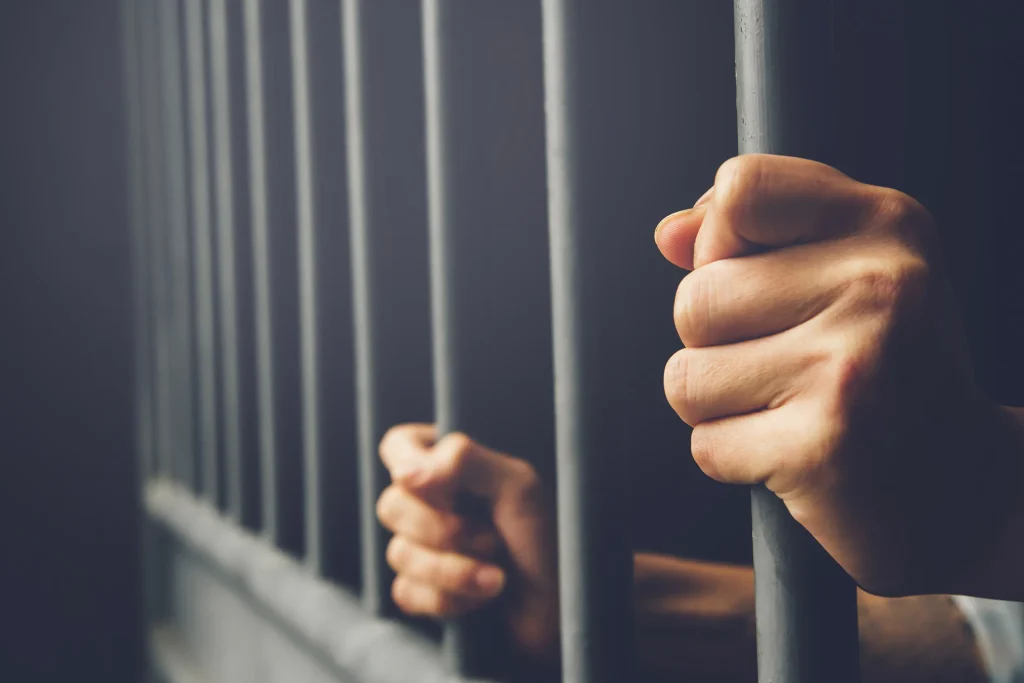
Failing to meet the florida cbd license requirements or any of the state’s regulations can have serious consequences for your business. Florida has established strict laws to ensure consumer safety and product quality in the CBD market. If your business operates outside of these guidelines, you risk facing penalties that could harm your reputation, finances, and long-term success.
1. Fines and Financial Penalties
Non-compliance with Florida CBD regulations often results in significant fines. These penalties can vary depending on the type and severity of the violation.
- Operating without proper licenses: Businesses found selling CBD without a Hemp Food Establishment Permit or other required licenses can face fines ranging from $500 to $5,000 per offense.
- Improper labeling: Selling products that do not meet Florida CBD labeling requirements can result in additional fines or product recalls.
- Selling untested or non-compliant products: If your products exceed the legal THC limit of 0.3% or lack a valid Certificate of Analysis (COA), you could face financial penalties and mandatory product destruction.
2. Product Seizures and Recalls
If your CBD products fail to meet state or federal requirements, Florida authorities can seize them and issue a mandatory recall.
- Seizures: Non-compliant products (e.g., those exceeding THC limits or missing a COA) may be confiscated during inspections.
- Recalls: You may be required to recall products from stores, which could damage your brand’s reputation and cost thousands in logistics and replacements.
3. Business License Revocation
Operating without adhering to the florida cbd license requirements could lead to the suspension or permanent revocation of your licenses.
- Immediate shutdowns: Businesses found operating illegally may be forced to close until all licensing issues are resolved.
- Long-term consequences: Having a revoked license on record can make it difficult to reapply or regain approval from the Florida Department of Agriculture and Consumer Services (FDACS).
4. Legal Action and Lawsuits
Non-compliance can open your business to lawsuits and legal challenges from both consumers and government agencies.
- Consumer lawsuits: Selling unsafe or mislabeled products could lead to consumer injury claims, which could cost your business millions in legal fees and damages.
- Government enforcement: Federal and state agencies, such as the FDACS or the FDA, could take legal action against your business for violating CBD regulations.
5. Damage to Brand Reputation
Even if you can recover from financial penalties or legal action, the damage to your brand’s reputation could be long-lasting.
- Loss of consumer trust: Customers who hear about recalls, legal issues, or fines may avoid purchasing your products in the future.
- Negative press: Media coverage of your violations could harm your credibility and drive customers toward competitors.
How to Avoid Non-Compliance
- Obtain all necessary licenses and permits: Ensure you fully comply with the florida cbd license requirements by securing the proper permits (e.g., Hemp Food Establishment Permit, Hemp Cultivation License).
- Work with reputable labs: Always have your products tested by a third-party lab and provide a valid Certificate of Analysis (COA) for every product.
- Follow labeling regulations: Ensure that your product labels include all required information, such as THC/CBD content, QR codes linking to COAs, and legal disclaimers.
- Stay updated on laws and regulations: Florida CBD laws are subject to change. Regularly check for updates from the FDACS and consult with legal professionals to ensure compliance.
- Conduct internal audits: Periodically review your business operations to ensure full compliance with all state and federal regulations.
By staying proactive and adhering to the florida cbd license requirements, you can protect your business from fines, legal trouble, and reputational damage. Compliance not only keeps you on the right side of the law but also helps build consumer trust and positions your brand for long-term success in Florida’s competitive CBD market.
FAQs About Licenses and Permits for Selling CBD in Florida
Navigating the florida cbd license requirements can feel overwhelming, especially if you’re new to the CBD industry. To make things easier, here are answers to some of the most frequently asked questions about licenses, permits, and compliance for selling CBD in Florida.
1. Do I need a license to sell CBD online in Florida?
Yes, selling CBD online in Florida requires compliance with the same florida cbd license requirements as a physical store. You must obtain a Hemp Food Establishment Permit if you’re selling consumable CBD products and ensure your products are tested and labeled properly. Additionally, you’ll need a general business license and may need to comply with federal shipping regulations for CBD products.
2. How much does it cost to start a CBD business in Florida?
The costs of starting a CBD business vary depending on your business type, but here’s a general breakdown:
- Hemp Food Establishment Permit: $650 annually.
- Business registration: $125–$150.
- Lab testing for COAs: $75–$150 per product.
- Other permits and inspections: $100–$600, depending on local and specific business needs.
Plan to invest at least $1,200–$2,500+ to get started.
3. Can I sell CBD at local markets or fairs in Florida?
Yes, you can sell CBD products at local markets or fairs, but you still need to comply with Florida’s licensing and labeling requirements. Make sure:
- You have the required Hemp Food Establishment Permit.
- Your products are properly labeled and include a QR code linking to their Certificate of Analysis (COA).
- The event organizers allow CBD sales, as some markets may have specific restrictions.
4. What types of CBD products are legal to sell in Florida?
In Florida, it’s legal to sell hemp-derived CBD products that comply with the following regulations:
- THC content must not exceed 0.3%.
- Products must be tested by a third-party lab and have a valid COA.
- Common legal products include oils, tinctures, gummies, topicals, and pet CBD products. However, products marketed as “medical CBD” or making health claims are prohibited unless approved by the FDA.
5. Do I need a special permit to sell CBD-infused food or beverages?
Yes, in addition to the Hemp Food Establishment Permit, you may need a Food Establishment License if you’re producing or selling edible CBD products. This ensures your products comply with state and federal food safety regulations.
6. Can I grow hemp and sell CBD products under the same license?
No, growing hemp and selling CBD products require separate licenses in Florida.
- To grow hemp, you’ll need a Hemp Cultivation License.
- To sell CBD products, you’ll need a Hemp Food Establishment Permit.
You can hold both licenses, but each requires its own application and fees.
7. What are the consequences of selling CBD without a license in Florida?
Selling CBD without proper licensing can result in severe penalties, including:
- Fines: Ranging from $500 to $5,000 per violation.
- Product seizures or recalls: Non-compliant products can be confiscated by authorities.
- Business closure: Operating without a license could lead to your business being shut down.
It’s crucial to meet all florida cbd license requirements before starting your business.
8. Are there any age restrictions for purchasing CBD in Florida?
Yes, in Florida, customers must be at least 18 years old to purchase CBD products. If selling online, ensure your website includes an age-verification process at checkout.
9. How often do I need to renew my Hemp Food Establishment Permit?
The Hemp Food Establishment Permit must be renewed annually. The renewal fee is $650, and you may be required to undergo inspections to ensure ongoing compliance with state regulations.
10. Can I sell Delta-8 or other cannabinoids in Florida?
Yes, Delta-8 THC products are currently legal in Florida as long as they are derived from hemp and contain less than 0.3% Delta-9 THC. However, these products must also meet all florida cbd license requirements, including proper labeling and third-party lab testing.
Why It’s Important to Stay Informed
Florida’s CBD laws are constantly evolving, and staying compliant with the latest regulations is essential to running a successful CBD business. By addressing these FAQs and following the florida cbd license requirements, you can confidently grow your business while avoiding costly mistakes.
Tips for Women Entrepreneurs Entering the CBD Industry in Florida
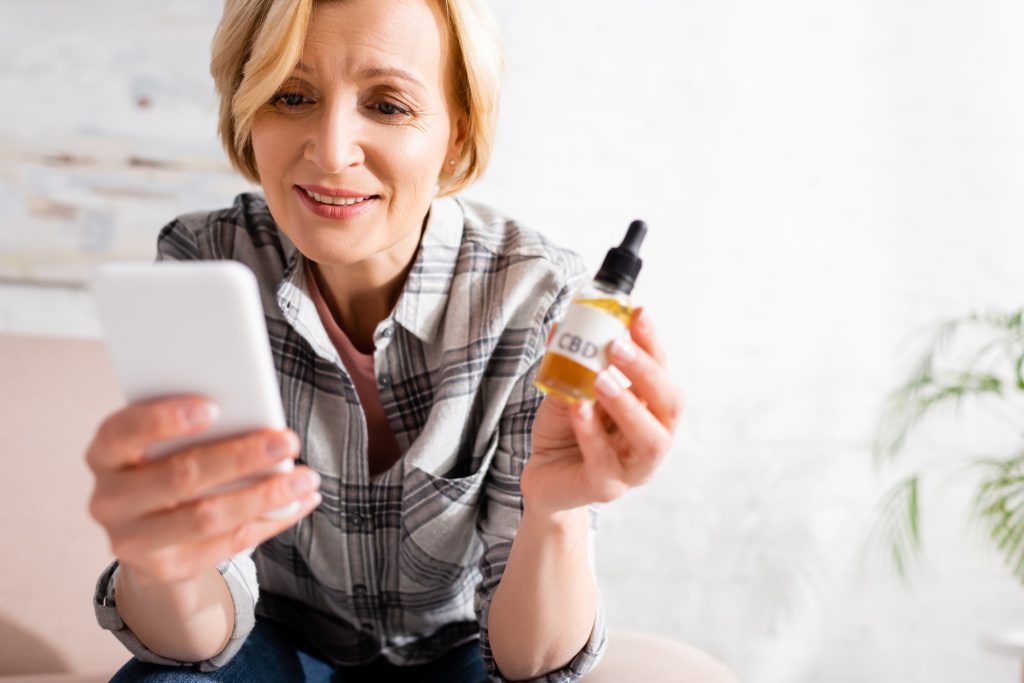
Breaking into the CBD industry can be both exciting and challenging, especially in a highly regulated state like Florida. As a woman entrepreneur, you have the opportunity to not only build a successful business but also redefine the narrative in a male-dominated space. Here are some essential tips to help you navigate the florida cbd license requirements, stay compliant, and establish a thriving CBD business that reflects your vision.
1. Prioritize Compliance from Day One
Compliance is the foundation of any successful CBD business in Florida. Make sure you:
- Secure all required licenses: Obtain the Hemp Food Establishment Permit, Hemp Cultivation License (if applicable), and any local permits.
- Meet labeling requirements: Properly label all products to include THC/CBD content, QR codes linking to the Certificate of Analysis (COA), and required warnings.
- Stay within THC limits: Regularly test your products to ensure they do not exceed the legal THC limit of 0.3%.
2. Build Relationships with Reputable Suppliers and Labs
Your product’s quality depends heavily on your supply chain. Partner with reputable suppliers and third-party labs to ensure that your products meet Florida’s strict quality standards.
- Choose organic hemp farms that comply with state and federal regulations.
- Work with ISO-certified labs for reliable COA testing.
- Build long-term partnerships with suppliers to secure consistent inventory and pricing.
3. Develop a Strong Brand That Resonates with Women
Women are one of the fastest-growing demographics in the CBD market, so tailor your branding to connect with them on a deeper level.
- Focus on wellness: Highlight how your products promote self-care, stress relief, and balance.
- Create beautiful packaging: Use soft colors, elegant designs, and clean aesthetics that appeal to women.
- Tell your story: Share your journey as a woman entrepreneur to inspire and connect with your audience.
4. Educate Your Customers
Many consumers are still learning about CBD and its benefits, so education can set your business apart.
- Offer transparency: Explain the sourcing, extraction, and testing processes behind your products.
- Share valuable content: Use your website, blog, and social media to educate customers about CBD, its uses, and the importance of compliance with the florida cbd license requirements.
- Host workshops or events: Provide in-person or virtual opportunities for customers to learn more about CBD and ask questions.
5. Leverage Digital Marketing to Expand Your Reach
A strong online presence is essential for growing your CBD business, especially if you’re targeting Florida’s competitive market.
- Focus on SEO: Use keywords like “florida cbd license requirements” and “CBD products for women” to attract organic traffic to your website.
- Utilize social media: Platforms like Instagram and TikTok are great for showcasing your products and connecting with your audience.
- Run email campaigns: Build an email list to keep customers informed about new products, promotions, and educational content.
6. Stay Informed About Industry Changes
The CBD industry is constantly evolving, and staying ahead of regulatory changes is key to long-term success.
- Subscribe to updates from FDACS: Regularly check the Florida Department of Agriculture and Consumer Services website for new guidelines or updates.
- Network with industry professionals: Join local CBD or hemp business associations to stay connected and learn from others in the industry.
- Consult with legal experts: Hire an attorney specializing in CBD and hemp laws to help you navigate complex regulations.
7. Embrace Sustainability and Transparency
Today’s consumers care about sustainability and ethical practices, so incorporate these values into your business.
- Use eco-friendly packaging and biodegradable materials.
- Be transparent about your sourcing and production processes.
- Partner with organizations or charities that align with your mission to give back to the community.
8. Focus on High-Quality Products
The CBD market is saturated, but one thing that never goes out of style is quality.
- Invest in premium ingredients and reliable manufacturing processes.
- Regularly test your products to ensure consistency and compliance with the florida cbd license requirements.
- Offer unique product formulations, such as CBD products designed specifically for women’s wellness (e.g., menstrual relief creams or sleep gummies).
Empowering Women Through the CBD Industry
As a woman entrepreneur, you have the power to create a business that reflects your values and empowers others. By staying compliant with florida cbd license requirements, building strong connections, and focusing on quality and education, you can establish a thriving business that makes a lasting impact. Remember, the CBD industry isn’t just about selling products—it’s about promoting wellness and creating a community of trust and empowerment.
Conclusion: Building a Successful CBD Business in Florida
Entering the CBD industry in Florida is an exciting opportunity, especially for entrepreneurs who are ready to embrace wellness, innovation, and compliance. However, success in this field goes beyond simply having great products—it’s about ensuring your business meets all florida cbd license requirements, operates ethically, and connects with your audience.
By following the guidelines outlined in this article, you now have a clear roadmap to:
- Secure the necessary licenses and permits, such as the Hemp Food Establishment Permit and Hemp Cultivation License (if applicable).
- Budget for key expenses like permit application fees, lab testing, and compliance certifications.
- Ensure your products meet Florida’s strict CBD labeling requirements, from THC content disclosure to QR codes linking to third-party lab results.
- Avoid costly fines, penalties, and reputational damage by staying compliant with Florida’s laws.
This guide has also highlighted additional tips for women entrepreneurs, including branding strategies, digital marketing tips, and ways to stand out in Florida’s competitive CBD market. As you move forward, remember to:
- Stay informed about evolving CBD laws and regulations.
- Focus on quality and transparency to build trust with your customers.
- Use your unique story and voice to connect with your audience, especially women looking for CBD products that reflect their values.
The CBD industry is growing rapidly, and Florida is one of the best states to be part of this movement. By positioning yourself as a knowledgeable, compliant, and trusted business owner, you’re setting the foundation for long-term success.
Are you ready to turn your CBD business dreams into reality? Let’s take the first step together. Compliance, quality, and empowerment will take you far—not just in Florida, but wherever the CBD industry leads you.
